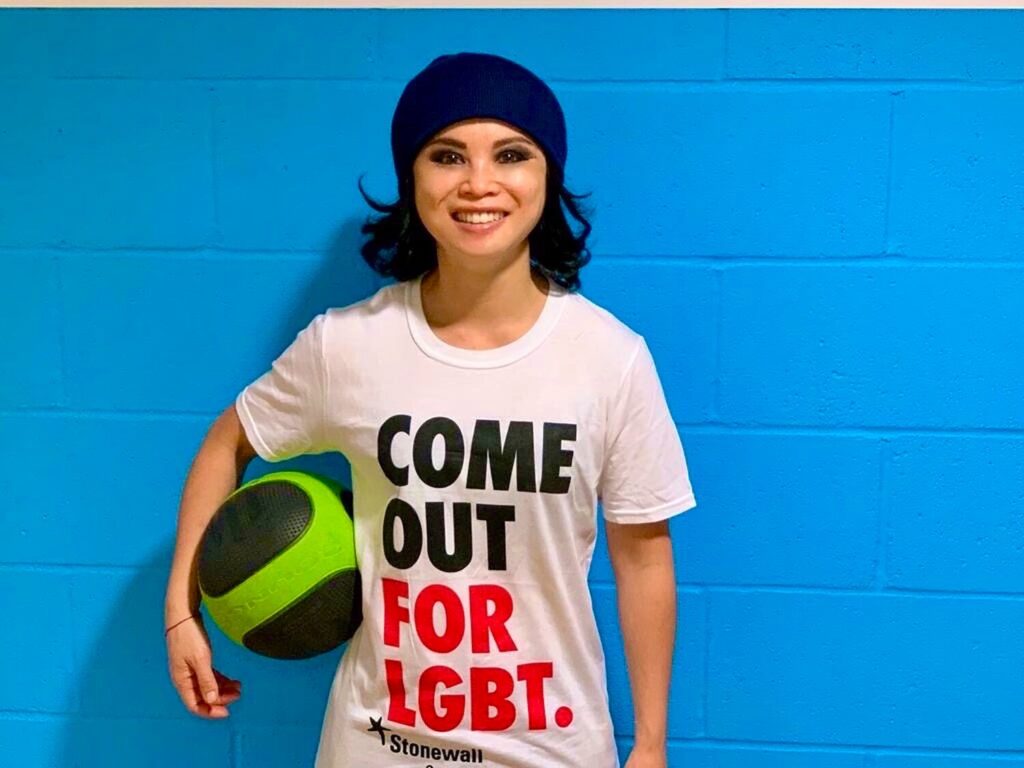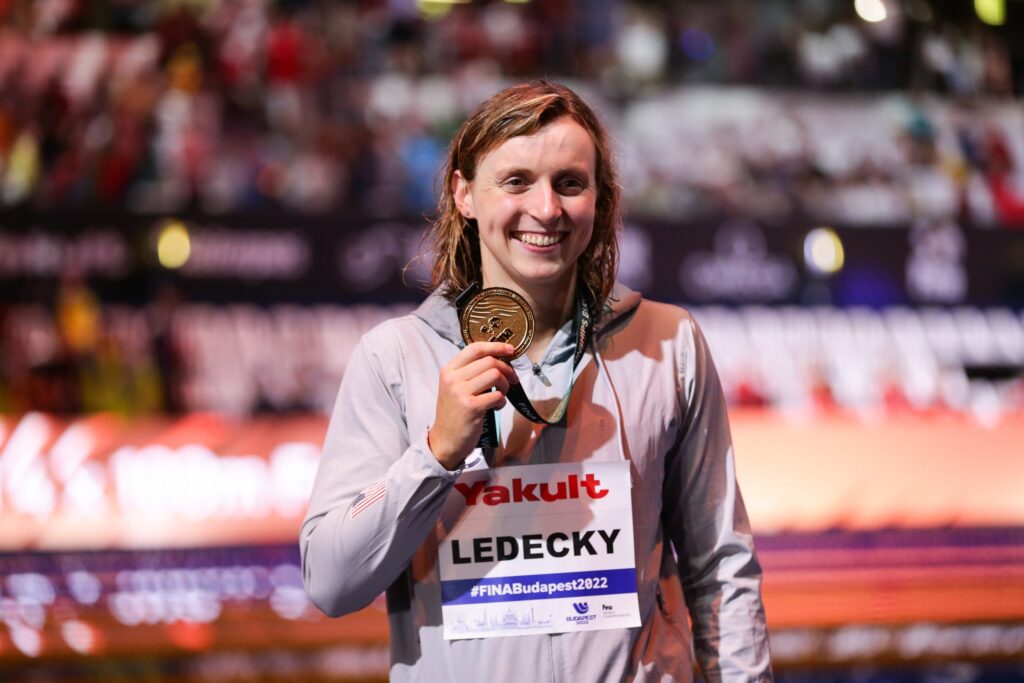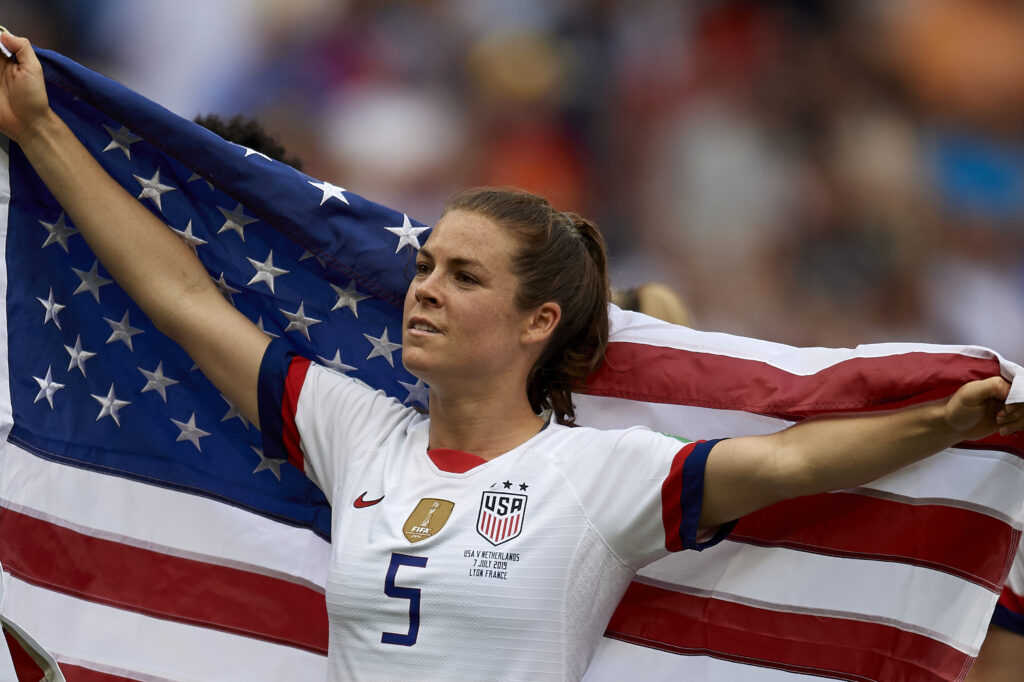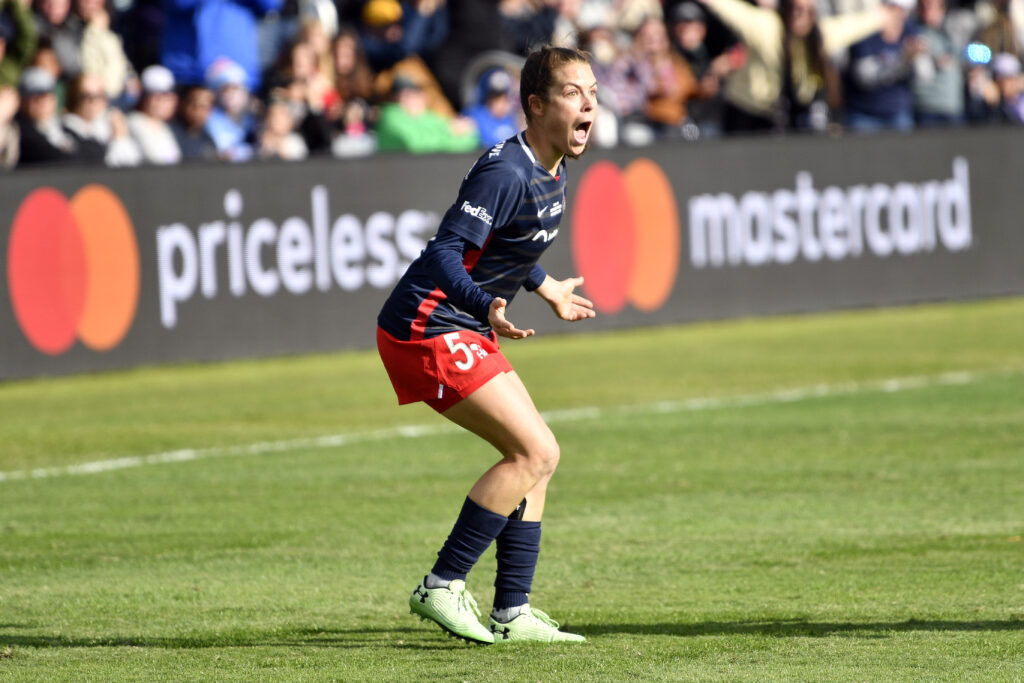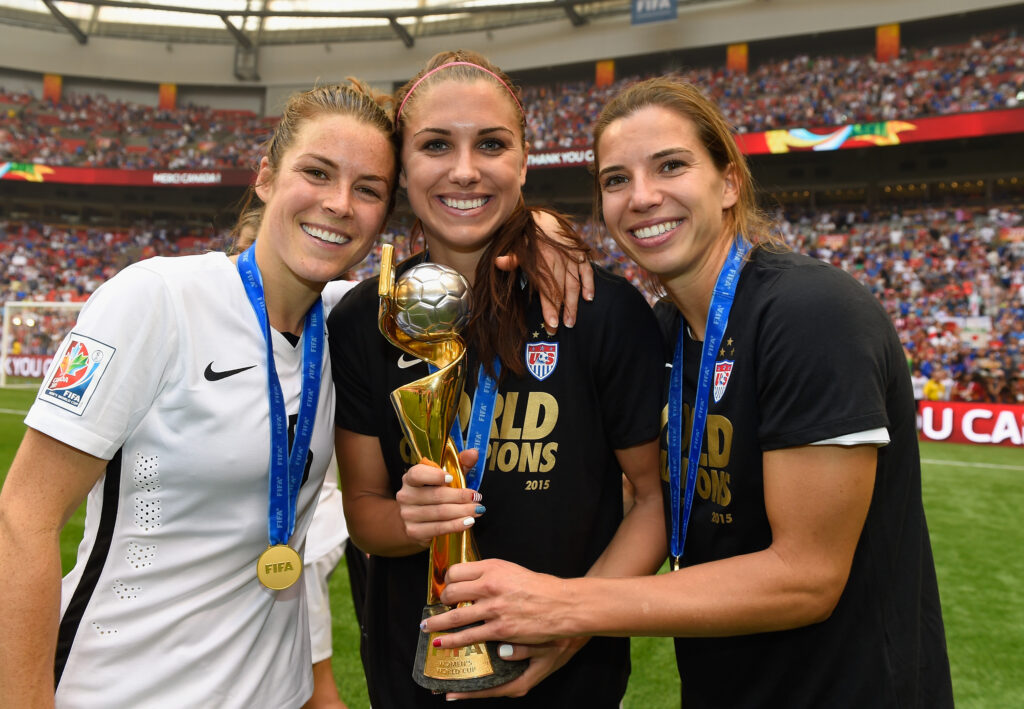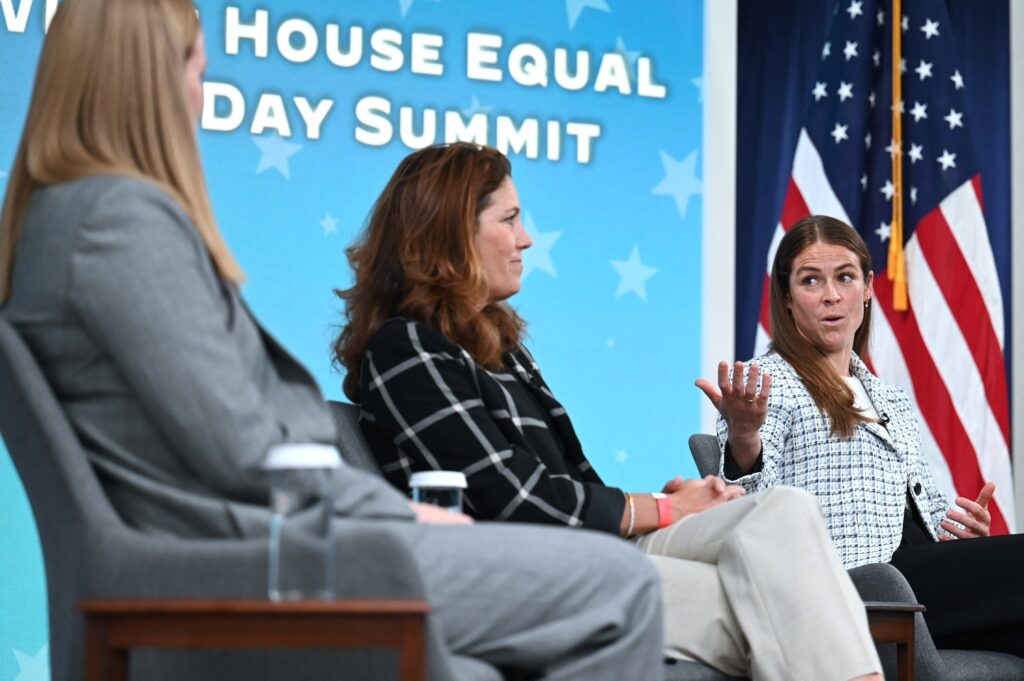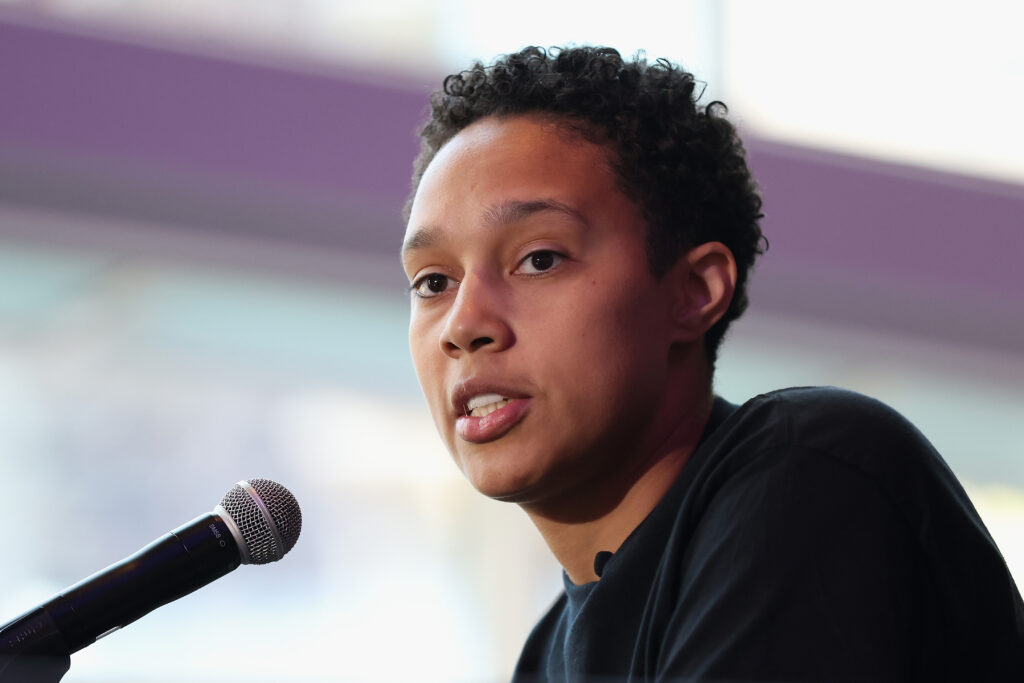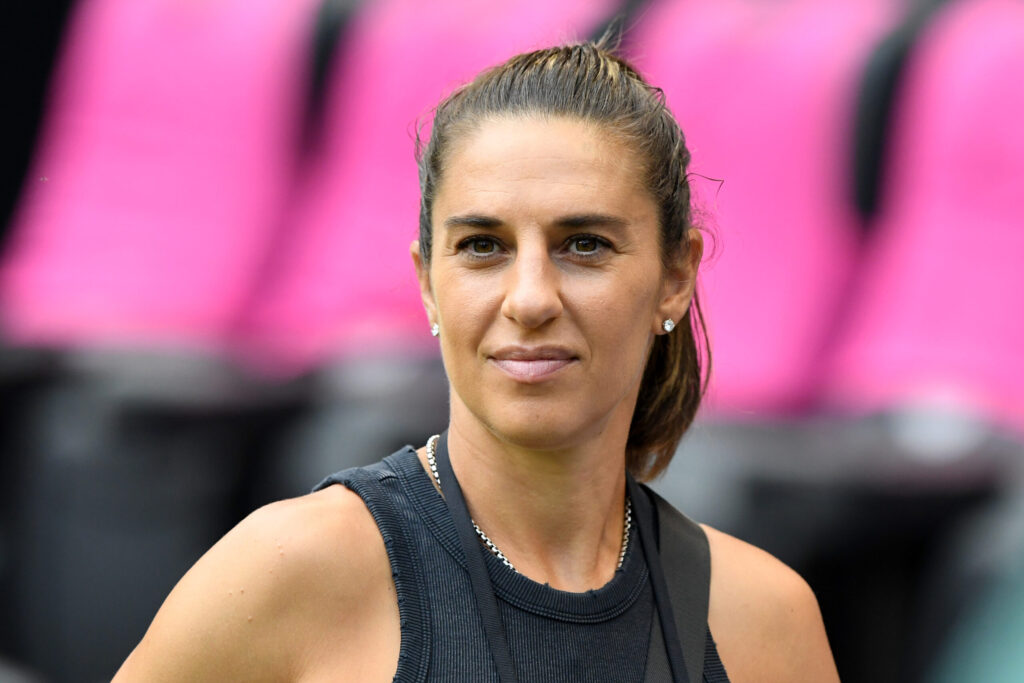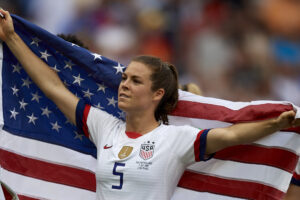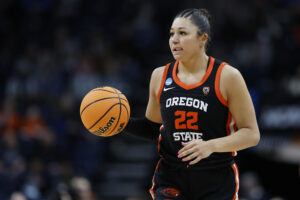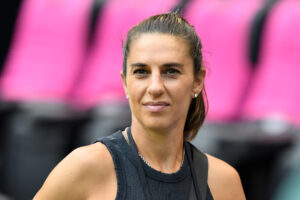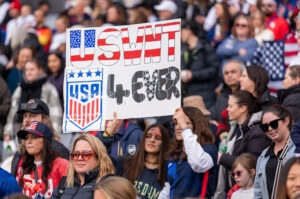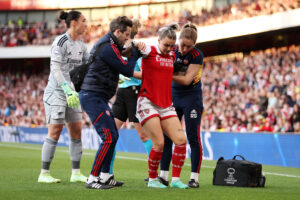Amazin LeThi is a Vietnamese American competitive bodybuilder-turned-sports activist who dedicates her time and efforts to advocating for the AAPI and LGBTQ community. She is the first Asian ambassador for LGBTQ rights organization Stonewall, and has been recognized by the Human Rights Campaign for using her platform in sports to fight for equality.
How were you first introduced to sports?
I was trying to find my place in society, as I struggled with my sexuality and did not see Asian or LGBTQ representation anywhere. I really wanted to find a sense of community, so I went into sports.
I love sports. I was very athletic as a kid, and I felt like it was a channel to get a sense of escape. Sports gave me a sense of purpose. It gave me a sense of self-worth and confidence that I much needed as a child because of all the bullying and racism that I received. Sports really made me the person that I am today. I can’t remember a moment when I wasn’t doing sports – it’s like brushing your teeth.
But as one of few Asian athletes in sports as a kid, I faced a lot of bullying. Some people thrive and find their spirit through team sports – I did not at all. I found team sports very unwelcoming.
And then how did you get into bodybuilding?
I fell into bodybuilding at six, which is an unusually early age to begin. I literally fell into bodybuilding. There were some dumbbells lying around the house, and I would spend days doing dumbbell curls, sit ups and pushups. I started going to the gym when I was seven or eight. Bodybuilding gave me a sense of self-worth and confidence. And it was something that I could do alone, away from team sports.
At the same time, bodybuilding is a very heteronormative, masculine and toxic sport that revolves around men. Women are in this male dominated space – trying to create muscles and a perceived sense of masculinity within the realm of femininity. We face pushback from men as we try to break down gender norms. I received a terrible amount of misogyny and sexism as a child – at age seven or eight.
When did you seriously start competing as a bodybuilder?
I started competitively competing as a teenager in natural bodybuilding competitions – often with no other Asian athletes competing alongside me. Most athletes were white, two to three times my size and very, very muscular. I was able to compete a number of times and place every single time as well, because I really worked on the craft.
But I knew as a competitive bodybuilder I wasn’t able to go as far as I would have liked to, just because I just didn’t have the physical stature for bodybuilding and being able to pack on the muscular size that I needed to compete against white athletes. I felt that I accomplished everything that I wanted to do within competitive bodybuilding in the few years I competed.
I can imagine bodybuilding is really tough on your body after a long time.
Because I started bodybuilding at such a young age, I was lifting an enormous amount of weight as I was still growing. For me, I felt the only way I could gain credibility in a completely male dominated environment was by lifting as much or more than them. By the time I was a teenager, my body was already very strained. I was squatting nearly 500 pounds. I was leg pressing nearly a thousand pounds.
The competition really took a toll on me – the amount of dieting that I had to do in a tight timeframe. For many female athletes the dietary restrictions and the pressure you put on your body upsets your natural cycle. At times then you don’t have your cycles. Competing at that level, for me, wasn’t a sustainable plan.
Tell us about your transition to becoming a health expert.
Through all my years in bodybuilding, I just kind of wanted to create this platform where I could share my knowledge and insight with others. Bodybuilding has given me a very holistic approach to fitness. When you’re working on your body you have to be very precise with the food you eat and what you do with your body. I wanted to share what I bring to the table in sports specific training, and sports nutrition, and psychology.
You are an internationally published Vietnamese health and fitness author. Can you talk to me a little bit about your published work and what it means to you?
I started writing as a freelance health and fitness writer – there are few Asian health and fitness authors that have been published. For me, publishing my writing was a golden moment where I could share the knowledge that I had in my head with the public. To be one of a few Asian health and fitness authors to have their book published was a very strange feeling, because I’d wanted to for so long to see an Asian health and fitness author for so long – I had no idea that I was waiting for myself.
You’ve become a very vocal activist in sports. What does it mean for you to use your platform to advocate for the LGBTQ and Asian community?
As a child, I did not feel supported by my teammates, coaches or the athletic community at large. I suffered a terrible amount of bullying and homophobia.
In 2020, we still don’t see enough representation of Asian athletes in sports. For example, Jeremy Lin is one of the few Asian-American basketball players to ever play in the NBA. I remember reading a title that one of the mainstream press had written about him. The headline read, “The chink in the armor.” [ESPN fired the writer who used the offensive racial slur in a headline referring to Lin.] And they thought that was okay. The amount of racism that he received at the professional level and the amounts of racism he has shared about enduring while young – that’s also my story. It’s the story of the Asian community, and a reflection of how sports media has negatively framed Asian athletes.
I need to use my platform and speak up. If I don’t, I’m part of the problem. As a member of the Asian community, I know what it is like, and I know what Asian people are still going through. We have very few Asian athletes in sports, let alone Asian LGBTQ athletes. It’s important that we continuously have conversations on how to create welcoming environments for all athletes that want to participate in sports. I know that Asian athletes are still struggling to get to pro level. If I wasn’t resilient and I wasn’t persistent, I would have dropped out of sports given the level of bullying and discrimination I suffered. I don’t want kids to grow up as an adult and think, “I wish I could have continued, I could have been that pro athlete.”
What’s next for you and the work you do?
We’re in a very special time in sports history where several major sports events will be in Asia over the next few years. [The next two Olympics will be hosted in Tokyo and Beijing, respectively.] This gives us an opportunity to open up conversations with Western countries on the question of how “you’re sending your best teams to Asia, but you’re not sending your best Asian athletes to Asia.” I’m having a lot of these conversations as we head into Tokyo 2021. Sports are coming for everyone.
